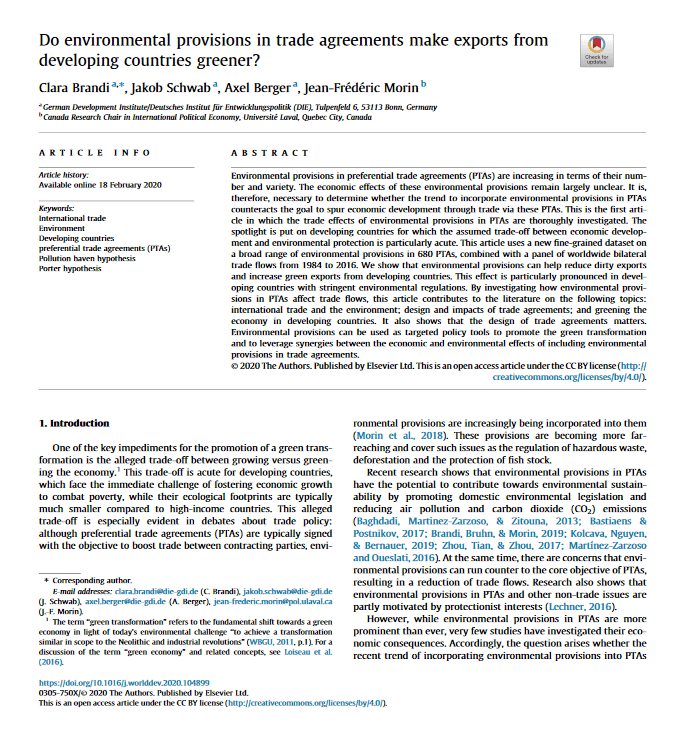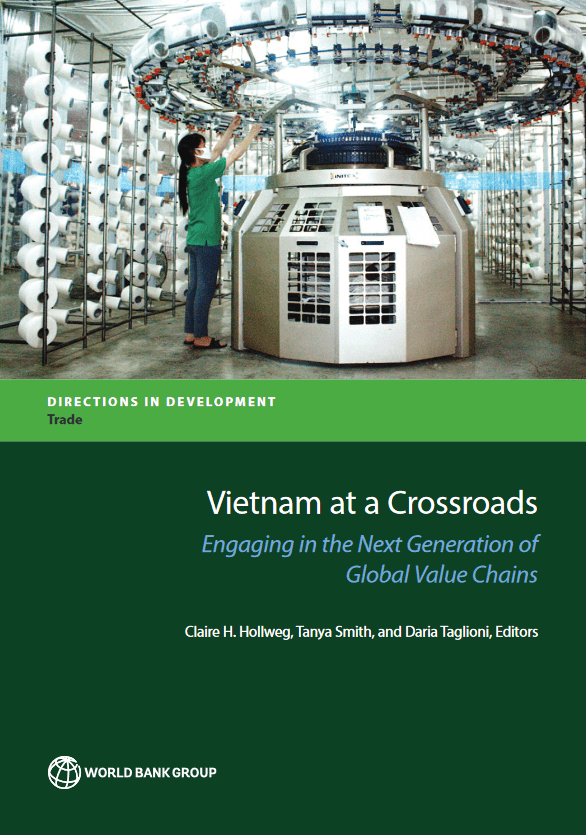︎

Axel Berger
German Development Institute / Deutsches Institut für Entwicklungspolitik (DIE)
Dr. Axel Berger is a Senior Researcher at the German Development Institute / Deutsches Institut für Entwicklungspolitik (DIE), Programme Transformation of Economic and Social Systems. He is heading the G20 Policy Research Group at DIE and led the T20 Task Force on Trade, Investment and Tax in 2017, 2018 and 2019. Axel holds a doctorate in political science from the University of Duisburg-Essen and a Master’s degree from the Munich Ludwig-Maximilians-University in political science, economics and modern history. He works on the design, effects and diffusion patterns of international trade and investment agreements, with a focus on emerging markets and developing countries. Other areas of current research include the effects of an international investment facilitation framework, the impact of free trade agreements on upgrading within global value chains and the role of the G20 in global governance. He teaches international political economy at the University of Bonn and regularly advises developing countries, development agencies and international organisations on trade and investment matters.
MORE ABOUT AXEL BERGER >
Jan 1, 2020
Clara Brandi, Jakob Schwab, Axel Berger, Jean-Frédéric Morin
Do environmental provisions in trade agreements make exports from developing countries greener?
Environmental provisions in preferential trade agreements (PTAs) are increasing in terms of their number and variety. The economic effects of these environmental provisions remain largely unclear. It is, therefore, necessary to determine whether the trend to incorporate environmental provisions in P...

Jan 1, 2017
Axel Berger, Dominique Bruhn
Vietnam at a crossroads: engaging in the next generation of global value chains
Vietnam is a lower-middle–income country and, like many of its peers, faces the challenge of upgrading to higher value-added tasks in global value chains (GVCs). Participation and upgrading are not an arbitrary policy objective: both may be of decisive importance for Vietnam’s future economic de...

Jan 1, 2013
Axel Berger, Matthias Busse, Peter Nunnenkamp, Martin Roy
Do trade and investment agreements lead to more FDI? Accounting for key provisions inside the black box
The previous literature provides a highly ambiguous picture on the impact of trade and investment agreements on FDI. Most empirical studies ignore the actual content of BITs and RTAs, treating them as “black boxes”, despite the diversity of investment provisions constituting the essence of these...

